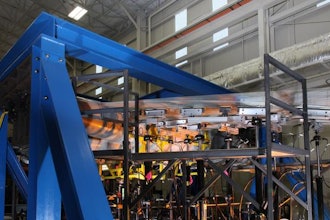
The National Association of Manufacturers released a new study, “The Economic Downsides of Right-to-Repair,” which highlights the cost to the environment, consumer safety and manufacturing innovation of providing unfettered access to complex software and components in manufactured goods. The study analyzes the wide range of unintended and potentially harmful consequences of “right-to-repair” legislation.
The study finds that instituting “right-to-repair” policies directly counteracts many federal laws put in place to protect both manufacturers and consumers. The study states that “bypassing the proper channels for repair will come at a steep cost to quality, performance, consumer safety, the environment and the broader U.S. economy.”
Notably, “right-to-repair” policies could seriously disrupt original equipment manufacturers’ supply chains, which would leave many consumers—especially in rural communities—without a reliable and efficient place to get a repair. “This could increase costs for customers significantly, as delays in placing equipment back in service directly affect a business’s bottom line,” the study warns. The study further highlights an Environmental Protection Agency estimate that more than 500,000 tons of excess emissions have entered the atmosphere since 2009 due to operators disabling or modifying emission controls in vehicles across multiple industries.
“For decades, manufacturing innovation has created new products and technologies that improve modern life,” said NAM Managing Vice President of Policy Chris Netram. “Unfortunately, so called ‘right-to-repair’ policies would threaten these programs, resulting in harm to the environment and putting Americans’ data and safety at risk.”
Background
In 2021, President Joe Biden signed an executive order encouraging the Federal Trade Commission to enact policies limiting OEMs’ ability to prevent nonauthorized entities from performing certain repairs. The NAM submitted comments to the FTC, calling “right-to-repair” legislation a “solution in search of a problem.” As of 2023, New York, Minnesota and Colorado have enacted “right-to-repair” legislation, and 23 other states have also considered legislation that would force manufacturers to provide direct access to replacement parts, grant unfettered access to the central processor and further limit their ability to constrain what consumers can do with their product.






















